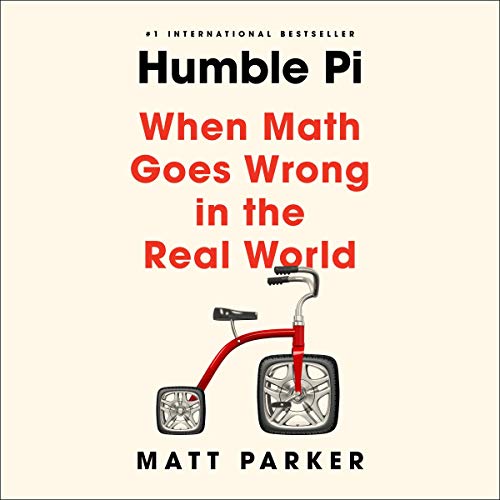Humble Pi: When Math Goes Wrong in the Real World
In a world where math often feels abstract and detached from our everyday lives, “Humble Pi: When Math Goes Wrong in the Real World” is a refreshing and eye-opening read that brings the importance of mathematics to the forefront. Written by Matt Parker, this international bestseller takes readers on a fascinating journey through some of history’s most notable mathematical mistakes.
Parker’s approach is both fun and informative, making complex concepts accessible to readers of all backgrounds. He cleverly addresses the age-old question that many have asked in math class: “When am I ever going to use this in the real world?” With wit and charm, Parker demonstrates how math permeates every aspect of our lives, from the algorithms that power our favorite websites to the calculations behind the design of towering skyscrapers.
What sets “Humble Pi” apart is its ability to entertain while educating. Parker’s storytelling skills shine as he recounts a wide array of mathematical mishaps that have had significant consequences. From misplaced decimal points wreaking havoc on the stock market to unit conversion errors causing disastrous plane crashes, these anecdotes serve as cautionary tales that highlight the importance of precision in mathematical calculations.
But it’s not just the big disasters that Parker focuses on. He also delves into the more mundane yet equally intriguing glitches that occur in everyday life. Whether it is a street sign with a misleading equation or a lottery system that falls victim to faulty statistics, Parker reveals how seemingly innocuous mathematical mistakes can have far-reaching implications.
Throughout the book, Parker effortlessly weaves in historical references, from the fall of the Roman Empire to the triumphs and blunders of Olympic teams. These anecdotes not only add depth to the narrative but also underscore the timeless nature of mathematical errors.
“Humble Pi” is a testament to the essential role math plays in our world, even when we may not realize it. Parker’s enthusiasm for the subject is contagious, and readers will undoubtedly come away with a newfound appreciation for the power of numbers. Whether you’re a math aficionado or someone who has always felt intimidated by the subject, this book is a must-read that will leave you feeling enlightened and perhaps even a little more forgiving of your own mathematical missteps.
